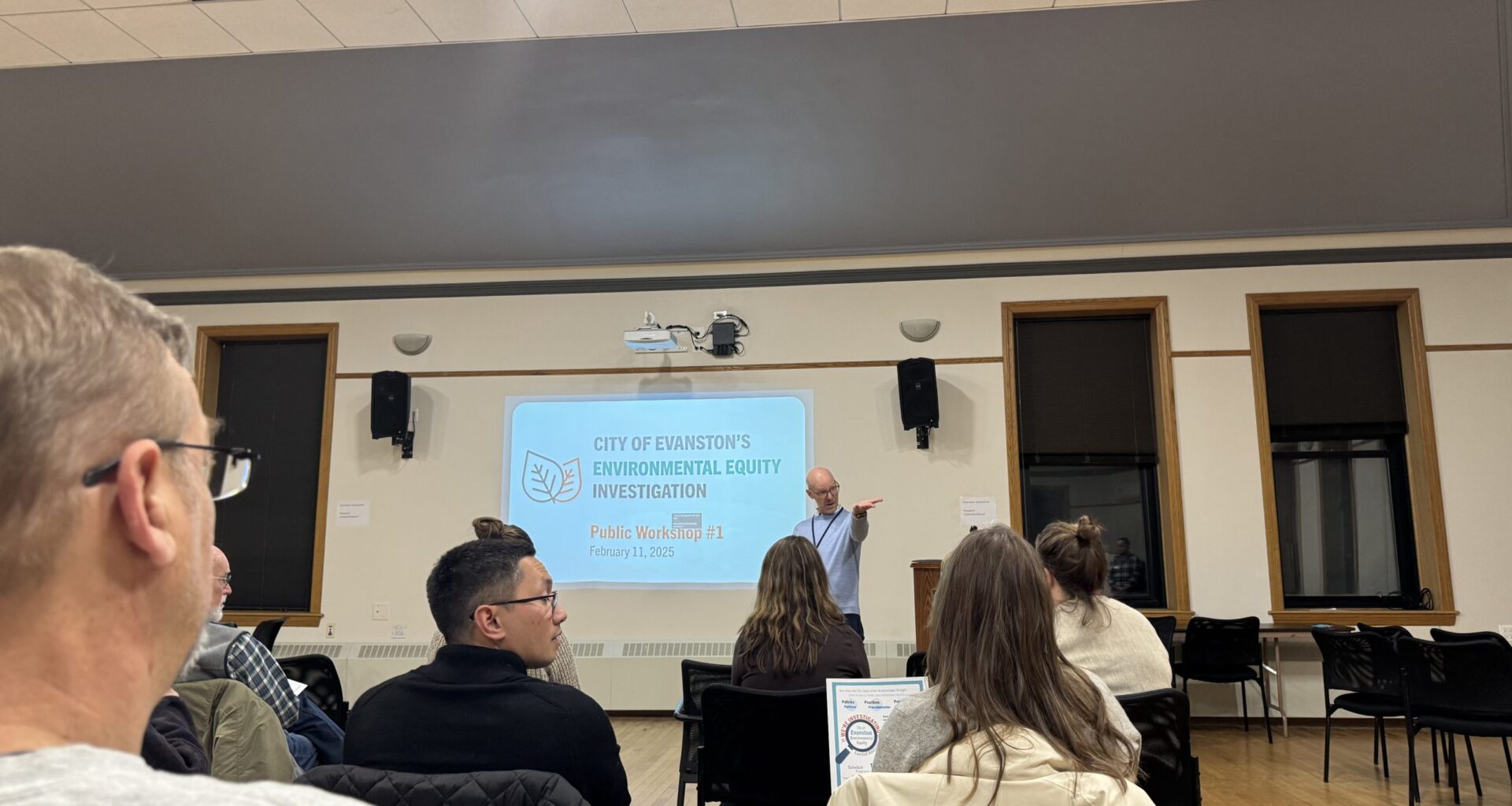In its first listening session, Evanston’s Environmental Equity Investigation team on Tuesday afternoon laid out a timeline to give the city recommendations by September.
The investigation team will look into how every Evanston resident can have the same opportunities for health and security. The group will host two more listening sessions.
Brian Hurd, an investigative partner with the team, said it hopes to have a report draft by September that will outline solutions toward environmental equity.
Homeownership, as it relates to environmental equity, is one of the team’s priorities.
“If your property is appraised at a certain value, and you have a neighbor and their property is appraised at a different level it could be because of the color of your skin,” Hurd said on Tuesday. “But if the real estate market and appraisers are forming your property tax through the appraisal process and their methodology, that impacts all of us.”
Cynthia Vargas, the city’s communication manager, said environmental hazards in the home — like “lead paint, lead pipes, and air pollutants from mold” — feed into environmental equity.
The investigative team will work with community partners such as the Evanston Public Library, school districts, the Environmental Justice Coalition and the Reparations Committee.
Vargas said the Reparations Housing Program and the investigation team both see housing as the city “mitigating environmental hazards and carbon emissions through increased efficiency.”
In the city’s Segregation in Evanston impact study, one discriminatory housing practice was to zone Black communities next to large construction sites, which “ led to major issues in terms of environmental justice and health disparities.”
Over 10 people attended Tuesday’s listening session, the next one will be held in April.
Related Stories
